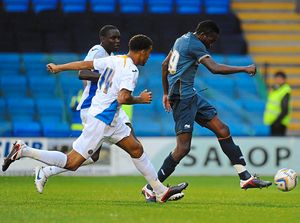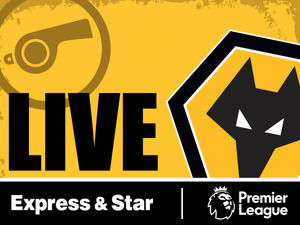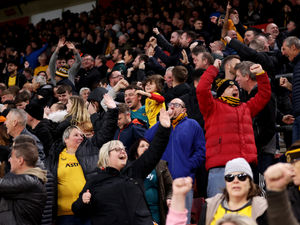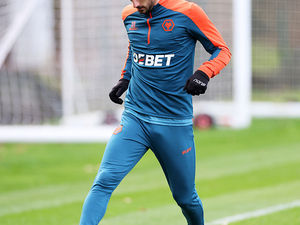Former Wolves man Tongo Doumbia and his footballing adventure since departing Molineux
If tonight’s friendly with Luton could perhaps be termed the Rob Edwards derby, or even the Ryan Giles derby, then what of Saturday’s final curtain-raiser before the big Premier League kick-off, when French Ligue One side Rennes are the visitors to Molineux?

The Razak Boukari derby? Prince Oniangue? Or how about Tongo Doumbia? All three who arrived at Wolves already boasting ‘Stade Rennais’ on their respective Curriculum Vitae, and probably share the view that their moves to Molineux never quite played out according to plan.
Oniangue was one of the procession of new arrivals during the first weeks of Fosun’s tenure and, whilst he looked like a player who could adapt to life in the Championship, he fell victim to a combination of circumstances where Wolves went through way too much change way too quickly, and Paul Lambert had to deliver a rescue act based on more tried and trusted personnel.
Boukari? The flying winger checked in during another time of transition, after the relegation from the Premier League when Stale Solbakken was handed his own mandate to try and change the team’s style of play.
He had sufficiently impressed his team-mates in training to the extent that they strongly believed he would be as good as Bakary Sako – who went on to be a huge success at Molineux – but the luckless Boukari endured an injury nightmare which prevented him ever firing on all cylinders.

That leaves Doumbia, who joined Wolves on a season-long loan from Rennes as a 22-year-old in the summer of 2012 and, in his own first pre-season friendly, couldn’t have done any more to make a positive first impression.
In an away game at Shrewsbury, he came on at half time with Wolves 2-0 down, promptly setting up Sylvan Ebanks-Blake to pull one back before winning the ball, evading two challenges and firing into the roof of the net to level the scores.
‘Wolves appear to have unearthed a new hero,’ screamed the intro from the Express & Star’s match report from the 2-2 draw.
‘Let’s all do the Tongo,’ boomed the travelling – and dancing – Wolves fans who had been mightily impressed by what they had seen.
“It was a great feeling, and I was really happy to show what I can really do in that first game,” Doumbia recalls.
It looked like he had the lot.
At 6ft 3in, Doumbia possessed a long and rangy stride that meant he covered distances quickly and had the makings of an archetypal box-to-box midfielder.
His strength meant he also had the capability of holding opponents off and, as shown against Shrewsbury, he could also finish.
Those considerable abilities had been honed at clubs back home in France, where Doumbia had been born in the village of Vernon, in Normandy in the north of the country.
He played youth football with Olympique Noisy-le-Sec, FC Les Lilas and RSC Montreuil, moving to the Ligue 2 side LB Chateauroux in 2007 before joining Rennes two years later.
It was during the 2010/11 and 2011/12 seasons that he became a more regular feature in the Rennes side, which also produced one particularly special, goalscoring memory in the January prior to joining Wolves.
“Life was a little bit hard where I came from, and so football is a dream for all young kids there,” Doumbia explains.
“As my first professional club, Rennes was a really good experience for me.
“And I will never forget my first goal against Marseille, in front of my Mom!”
It was another fine strike, a low shot from distance, in what was a top six clash, and, by now Doumbia’s burgeoning reputation was attracting admiring glances from well beyond Molineux.
There had been comparisons made between his style of play and a rather famous French international by the name of Patrick Vieira, whose glittering career had not long come to an end with his final appearance for Manchester City as a substitute in the 2011 FA Cup Final against Stoke.
Those comparisons were not just being made by the French media or within the stands, as legendary Arsenal boss Arsene Wenger had also started to run the rule over Doumbia’s progress.





